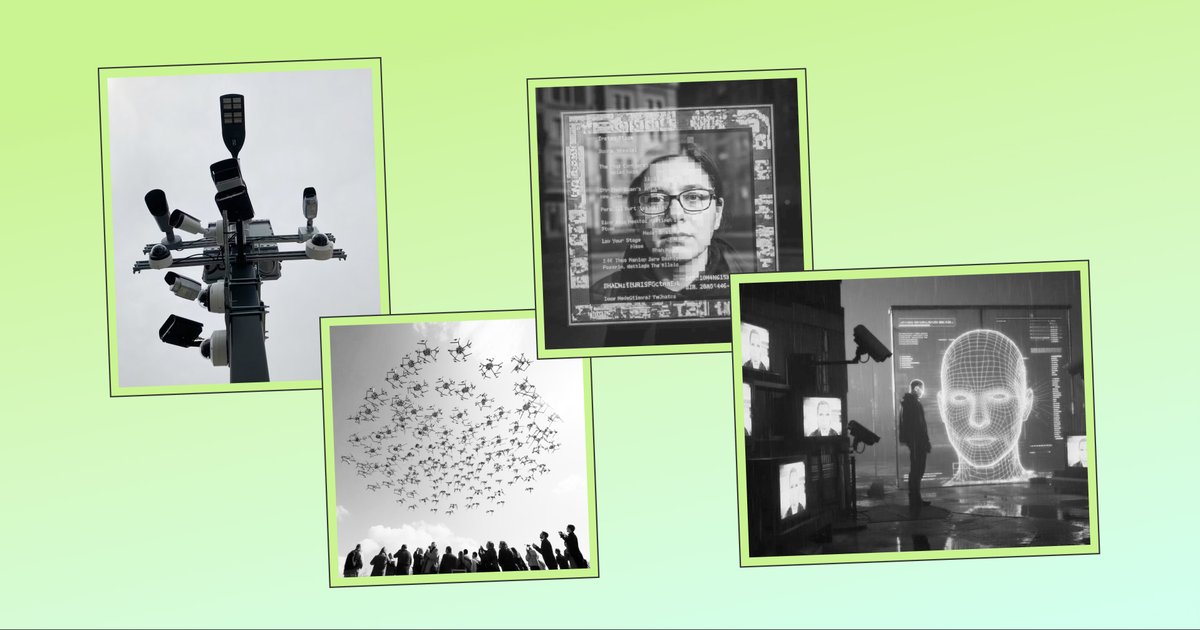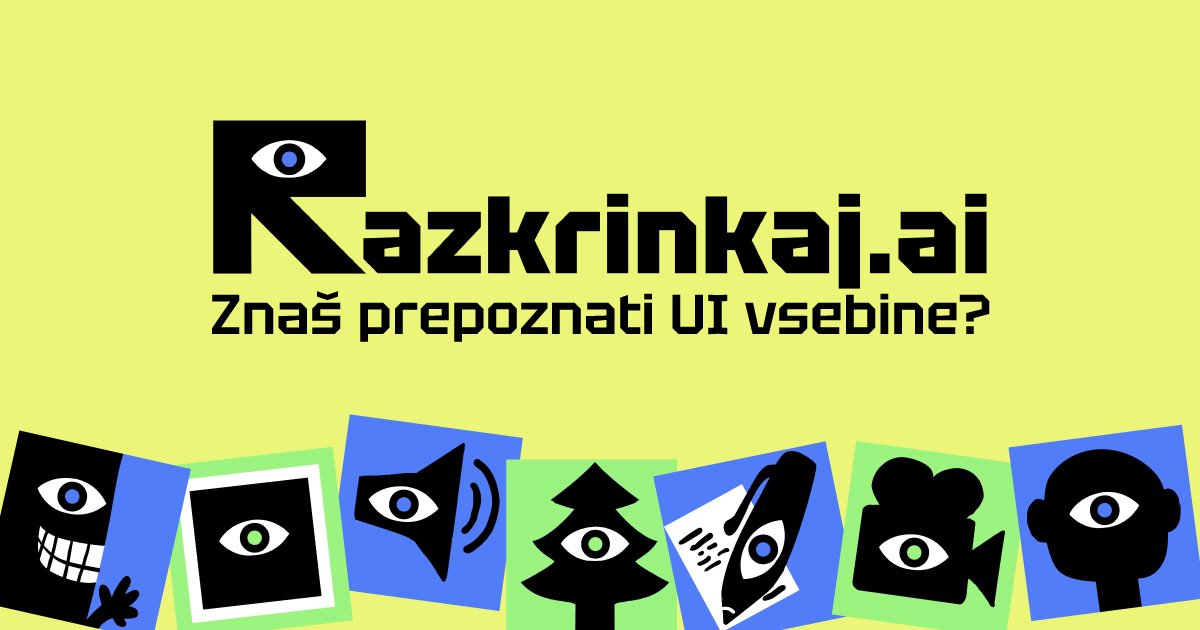Projects

9. December 2025
On 12 November, the Prime Minister surprised the public with news that Slovenia plans to purchase generative AI licences from foreign tech corporations. This move, made without expert consultation and against domestic and EU guidelines, undermines Slovenia's digital sovereignty and our security. Together with over 70 experts, we warn that the state should invest in open, secure and locally developed AI, and we call on the Prime Minister to cancel the public procurement. This text is in Slovenian.

5. December 2025
The Ministry of Digital Transformation recently published new guidelines for the development of IT solutions. We believe the document overlooks key aspects affecting security, the position of users, and service quality. As a result, we propose improvements ranging from stronger rights protection to open source and stakeholder inclusion. Read our comments and recommendations! This text is in Slovenian.

25. November 2025
Proposed amendments to the Slovene Intelligence and Security Agency Act expand surveillance, legalise the use of spyware, and open the door to serious intrusions into privacy and other fundamental rights. Attempts were made to fast-track the bill without proper public debate. Read our opinion and the reasons why we strongly opposed such a solution. This text is in Slovenian.

Subscribe to Občasnik, our monthly newsletter
Each month, we curate a selection of our reflections, projects, public appearances, collaborations and recommendations for reading and action. Občasnik is concise yet substantial, effective yet unobtrusive — and always timely!


25. November 2025
Thousands of Slovenes are under surveillance. Are you one of them? We have created an app to help you find out exactly what the Slovene Intelligence and Security Agency knows about you. Try it out and spread the word!

21. November 2025
Proposed legislative changes could dangerously undermine key EU digital rights. The so-called Digital Omnibus agenda prioritizes competitiveness over safety, risking the dismantling of hard-won rights and oversight of dangerous technologies. These changes grant corporations and governments more access to our data while leaving us with less protection. This serves the financial interests of Big Tech, not citizens! This text is in Slovenian.


1. October 2025
The online quiz Manipulation is not information helps users identify rhetorical tricks commonly found in media and politics. Every day in October, the site features a high-profile statement, tasking visitors with identifying the manipulative technique being used. Additionally, the website serves as a guide that breaks down eleven of the most common rhetorical tricks, making it a valuable resource for anyone looking to better understand the mechanisms of persuasion and deception.


10. September 2025
In light of the exceptional progress in artificial intelligence technologies in recent years, we are seeing increasing interest in this technology among public sector employees. We therefore call on the Ministry of Digital Transformation and the Government to establish a publicly accessible register that will include key information about the AI systems used by public authorities.
For our continuous independent work we need your support!!
Donate


10. September 2025
As the European Artificial Intelligence Act takes effect, exceptions have been introduced that could undermine the protection of fundamental rights. That is why we prepared and addressed to decision-makers a set of recommendations aimed at preventing the weakening of democracy, democratic processes, and the rule of law.

1. August 2025
It's been one year since the AI Act became EU law. Yet as its full enforcement is being prepared, the EU and some member states are already attempting to weaken its hard-won safeguards. What is at stake, and how can we defend our rights from AI-powered repression and surveillance?
In cooperation with Protect Not Surveil and the EDRi AI Act Working Group.

16. July 2025
Together with 52 civil society organisations, experts and academics we have written to the European Commission to express our concerns about growing pressure to suspend or delay the implementation and enforcement of the Artificial Intelligence (AI) Act. Instead of unraveling the EU rulebooks, the Commission should focus on the full implementation and proper enforcement of its rules.
In cooperation with EDRi.

10. July 2025
Given the abundance of information about human rights violations carried out using technological surveillance, one would find it hard to believe that anyone could write positively about this topic. And yet, in the newspaper Delo, we recently came across an editorial by Mojca Pišek titled 'Why Chinese cameras don't bother me'. In our response, we explain why cameras do not represent freedom and security, but rather repression and surveillance. This text is in Slovenian.

14. May 2025
Starting May 27, Facebook and Instagram will use your posts, comments, photos, and other personal data, dating back to the creation of your account, to develop their generative AI models – and they’ll do it without your consent. Learn what you can do to stop it. This text is in Slovenian.

23. April 2025
The Ministry for Digital Transformation’s cautious approach to implementing the European AI Act into national law raises a number of questions and leaves room for ambiguities that could jeopardise the protection of rights. That’s why we are calling for greater transparency and the introduction of clearer appeal and oversight mechanisms, offering concrete proposals to achieve this. This text is in Slovenian.

17. April 2025
Israel has since its formation subjected Palestinians to invasive surveillance. Technological advancements, mass data collection, and artificial intelligence have only strengthened this repressive power. Explore how facial recognition systems, spyware, and Israel’s data regime operate – and why holding on to hope still matters – in a piece based on a conversation between Maja and Shir Hever, coordinator of the military embargo campaign within the Boycott, Divestment, Sanctions movement.

16. January 2025
The AI Act still contains serious loopholes that open the door to abuse – particularly in the areas of biometric surveillance and migration. Together with the AI Act civil society coalition and the #ProtectNotSurveil coalition, we call on the European AI Board to ensure that the implementation of the legislation is based on the protection of the rights of all people with its upcoming guidelines!


11. December 2024
The rapid development of generative AI is making it increasingly difficult to distinguish between reality and fiction. Digital spaces are full of synthetic content that, at best, seeks to capture our attention and, at worst, aims to deceive us. That’s why we developed Razkrinkaj.ai (or Recognise.ai), a tool designed to test your ability to recognise AI-generated content and educate you on the risks of its misuse.
